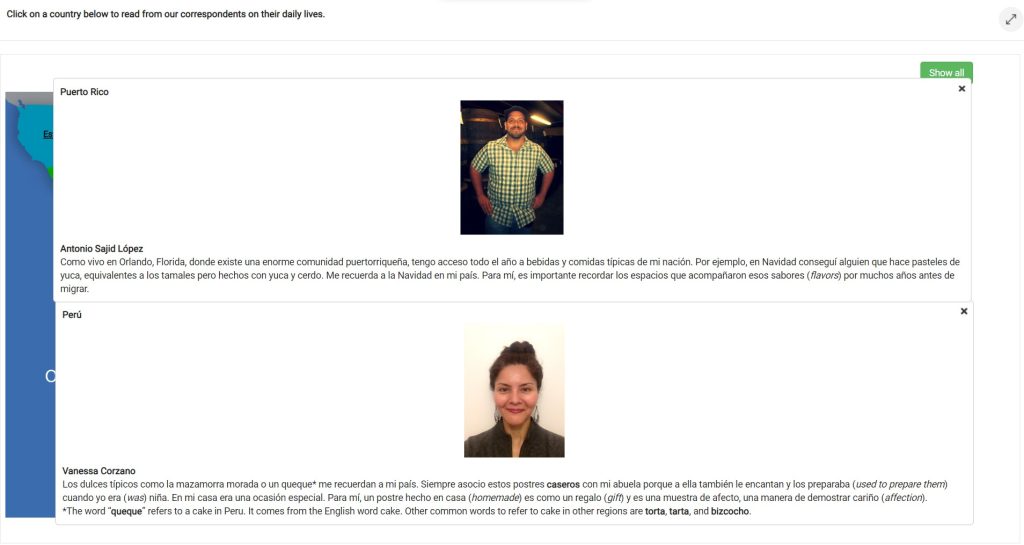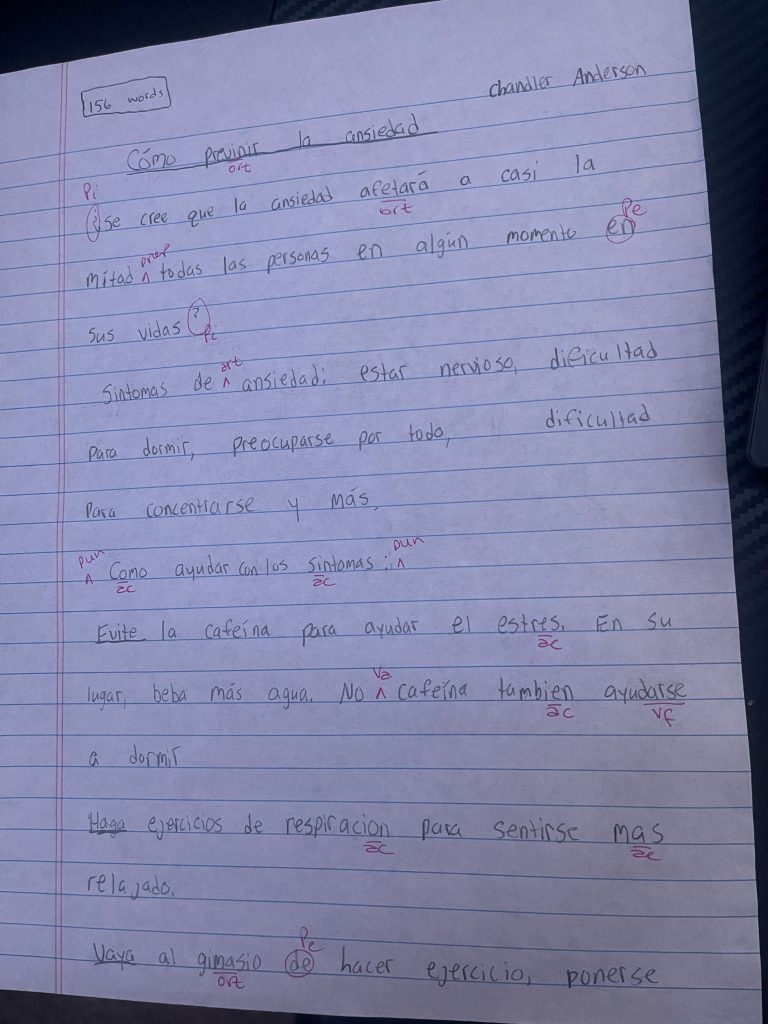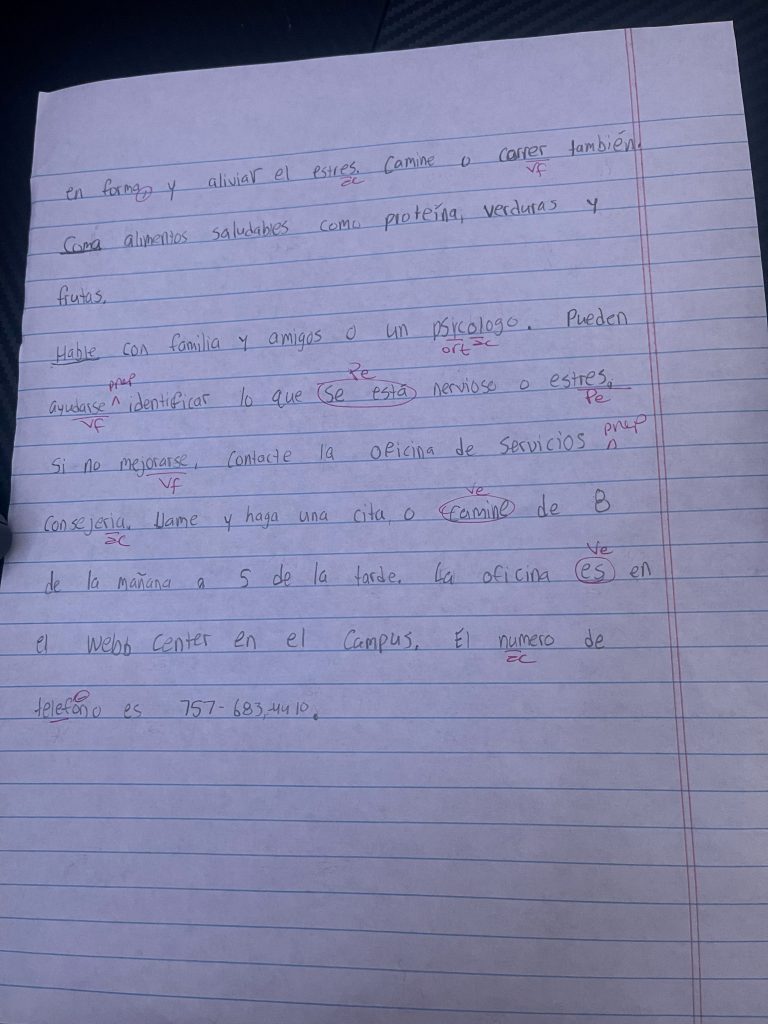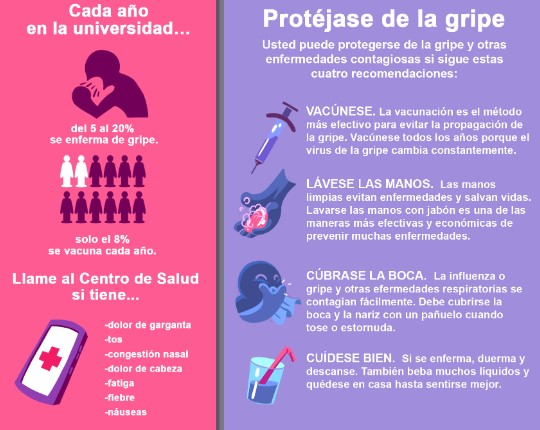Interpretive, Interpersonal, and Presentational Modes of Communication
Exploring Culture
In each unit on LingroLearning, there’s a section that consists of exploring other cultures. This usually includes a brief description from individuals in different Spanish speaking countries, and they discuss different aspects of what it’s like to live in that particular country. For example, in Module 8, 4 individuals discussed their favorite dishes, and how those dishes are associated with their countries culture and family. One individual from Peru discussed Mazamorra Morada, which I learned is a popular dessert consisting of fruit and corn. Another dish I learned about was Pasteles de Yuca, which is popular in Puerto Rico and look similar to tamales, but are prepared and taste different.

Interpersonal Communication
This semester, I was able to have a conversation through TalkAbroad with a fluent Spanish Speaker from Nicaragua/Costa Rica named Allan. This was my first time having a conversation with a Spanish speaker that I hadn’t met previously, so I was definitely nervous going into the call. I feel like this experience was extremely beneficial overall, and while I may have struggled at times, it was great practice, and I feel it is an important experience for those trying to learn another language. While classroom conversations certainly help, there is nothing that can compare to a spontaneous conversation with a fluent speaker of the language. I learned that it’s okay to make mistakes or say you don’t understand something, especially when you’ve only been studying a language for less than two months like I have. Below is a short clip from my talk abroad conversation. This includes a part where I was unable to understand a question he asked me, but I was able to communicate that to him and he was able to explain his question in a way I could understand.
https://clipchamp.com/watch/aP2F59HQ7Ss/embed
Presentational Speaking
While we did a lot of discussions in Spanish throughout the course, there were not any graded assignments regarding our ability to speak or present anything orally. Most assignments and end of unit projects were conducted through writing. However, nearly everyday, we would break up into groups and create sentences and answer questions, and then read our answers aloud. The professor would also walk around the class and check our work and answer any questions.
Presentational Writing
Throughout the semester, we were required to complete several different types of projects. These included describing our family, explaining how to create a particular dish, creating a flyer advertising a sports club, and creating a flyer describing how to take care of a certain aspect of physical or mental health. These projects got harder with each one, but I definitely learned the most from the final project on health, which required usage of formal commands, and also required the most words. I feel my major areas for improvement are in remembering to add accent marks, as well as working on preposition usage.


Interpretive Listening
When completing homework assignments on LingroLearning, there are several activities in each unit that consist of listening to a conversation or advertisement, and answering questions about what was said. These activities were challenging at times, as sometimes the speaker would talk extremely fast, making it difficult to identify things such as verb conjugations. While these assignments were often challenging, they were beneficial in the aspect of learning how to enunciate certain verbs and nouns.
Interpretive Reading
Throughout the course, we looked at several posters, articles, etc, read them aloud, and translated them as a class and individually. This was one of my favorite activities throughout the class, because it allows you to see the level at which you are in regards to reading and understanding the language. For me, I would do my best to identify cognates, and use my knowledge of the language to get a general understanding of what is being said. Below is an example of a poster we read in class, and was also apart of the Unit homework.
